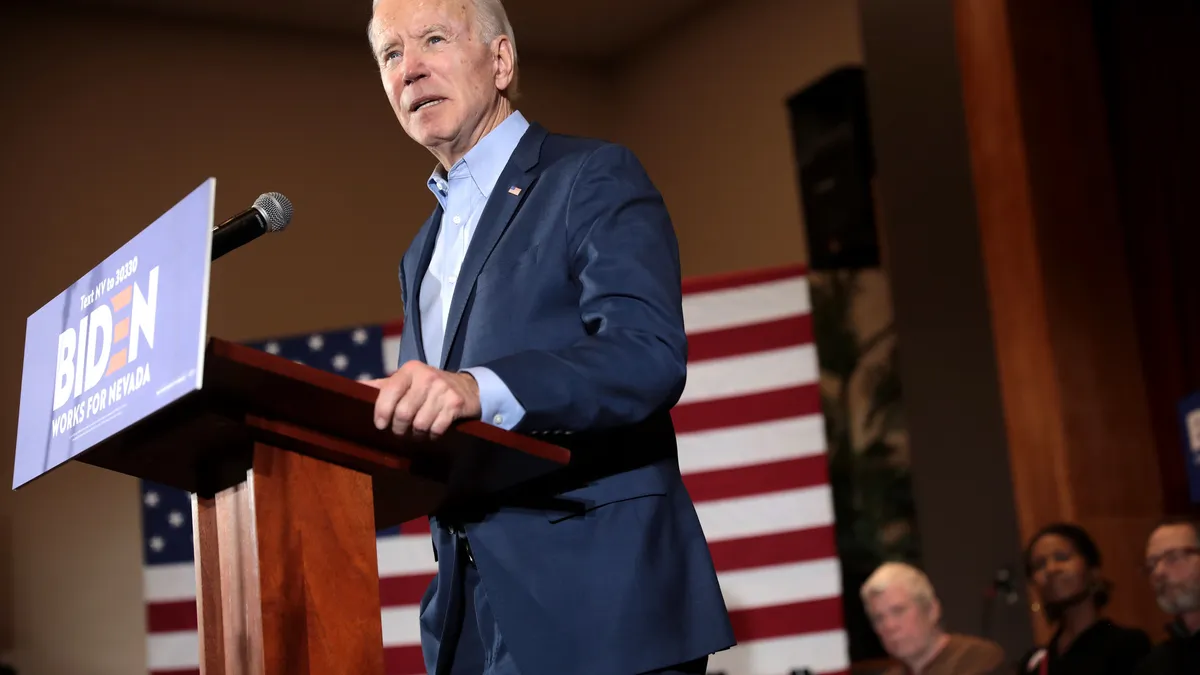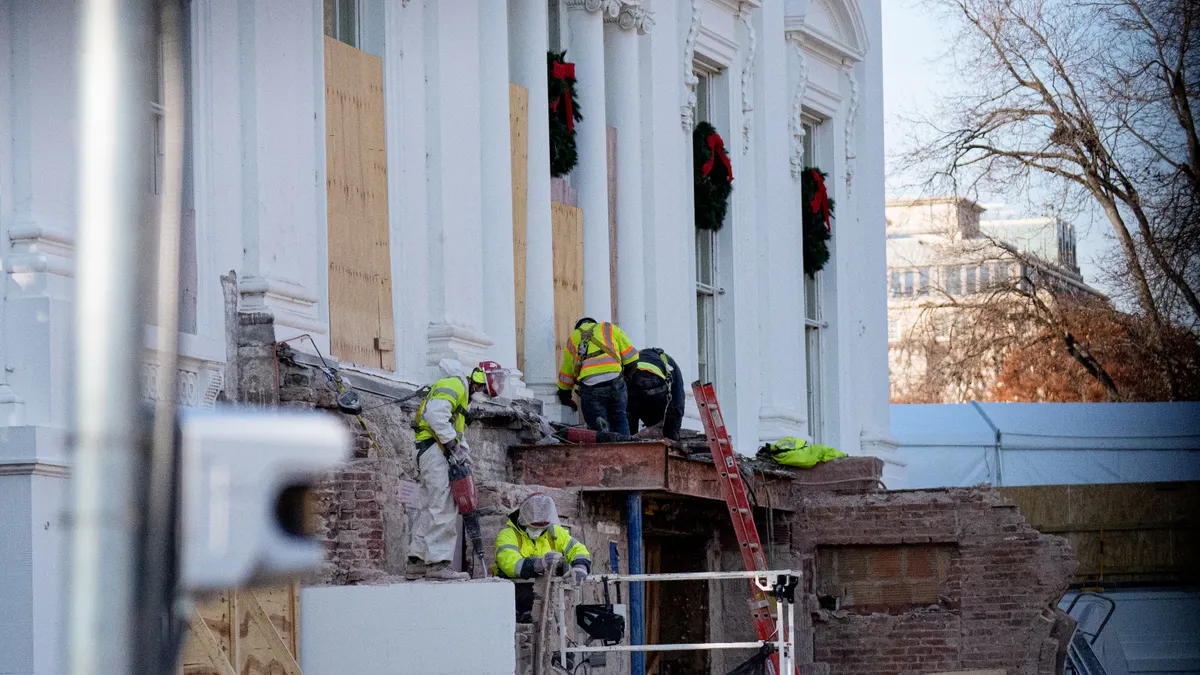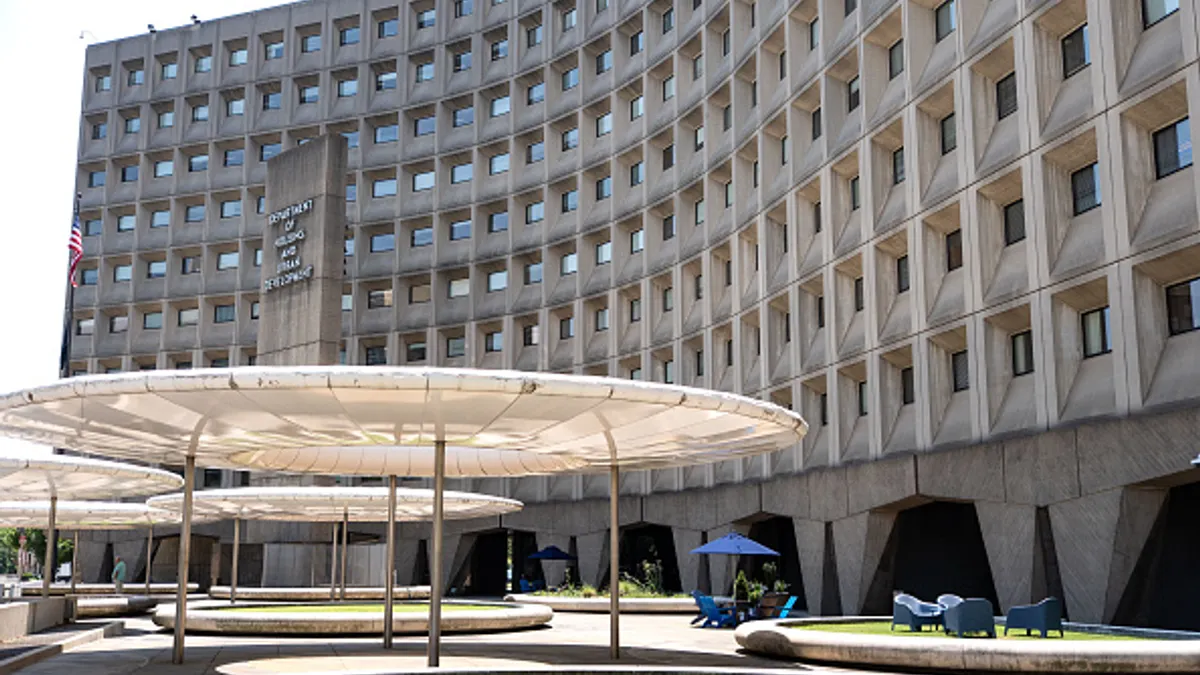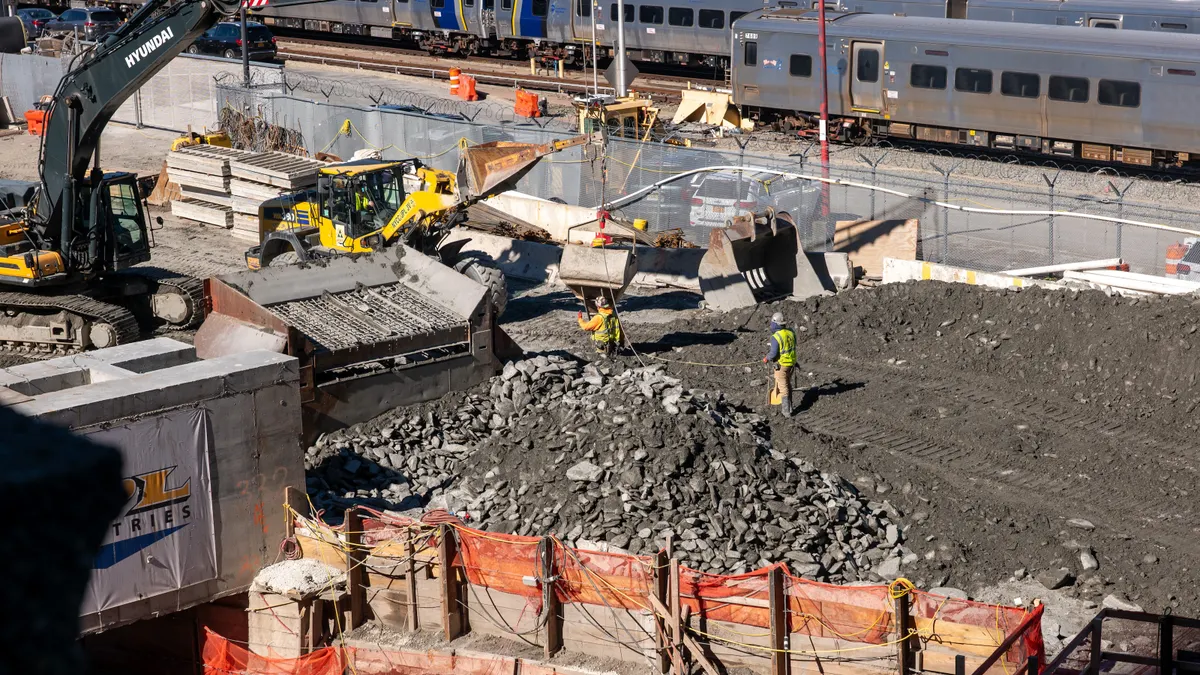Inauguration Day is right around the corner, and with the swearing-in of President-elect Joe Biden, there are some things he has already said will change.
Biden has been quite vocal about reversing some of President Donald Trump's policies and programs like the construction of a border wall between the U.S. and Mexico and the U.S. withdrawal from the Paris climate accord and the World Health Organization.
The big question for the construction industry, however, is whether a Biden administration will go after the business-friendly regulations that Trump and his appointees spent the last four years putting in place. In other cases, Biden's team could bring back regulations that Trump worked to discard.
For instance, Trump issued an executive order this summer directing federal government agencies to waive environmental regulations and to take other actions necessary to streamline and expedite infrastructure projects. The order, designed to help hasten the economic recovery from the COVID-19 pandemic, effectively got rid of the responsibility for federal agencies to abide by regulations established by the National Environmental Policy Act, the Endangered Species Act and the Clean Water Act.
So how will the regulatory environment change under the Democrat's administration?
The first thing that is likely to happen, said Jimmy Christianson, vice president of government relations at the Associated General Contractors of America, is that upon Biden’s inauguration, or shortly thereafter, the new administration will initiate a federal regulatory freeze.
“Anything in proposed rulemaking,” he said, “any proposals, any guidance initiatives being put forth come to a halt.”
This gives time, Christianson said, for the new administration to set its regulatory priorities.
A halt on rulemaking initiatives would likely include a Department of Labor rule that revises the guidelines for determining if a worker falls into the category of employee or independent contractor. The DOL regulation gives employers more leeway than other stricter ones, said Ben Brubeck, the Associated Builders and Contractors’ vice president of regulatory, labor and state affairs.
Also probably high on the list, Brubeck said, is the National Labor Relations Board’s joint-employer rule, which redefined joint-employer status under the National Labor Relations Standards Act. The new regulation, which won praise from employer organizations including the ABC, not only sets out requirements for employer communication with unions and responsibility for unfair labor practices but limits joint-employer status to companies that share control of activities like wages and hiring.
Other construction-related rules that could change under the new administration include:
Overtime rule
Under former President Barack Obama, the DOL proposed raising the minimum salary threshold to $47,476 from $23,600. This meant that employers would have to pay workers the new, higher salary in order to classify them as exempt from overtime wages. Business groups, including those representing contractors, argued that the new limit would create a burden for employers and didn’t take into consideration that compensation differs around the country.
However, that threshold was lowered to $35,568 during the Trump administration, and, Brubeck said, Biden’s DOL might try to revisit the limits once again.
Persuader Rule
After a Texas court blocked its implementation, Trump’s Department of Labor rescinded the Persuader Rule, which required employers to disclose attorney-client communications pertaining to labor union organization efforts. The Biden administration, which promises to view these sorts of issues with a pro-union stance, could try to reinstate this rule.
Fair Pay and Safe Workplaces Act
The DOL act, also known as the blacklisting rule, would have required contractors bidding on federal construction projects over $500,000 to submit their history of labor compliance for review to the DOL before a potential award.
Using the Congressional Review Act, Congress repealed the rule only a few months after Trump’s inauguration. The CRA, Brubeck said, prevents a significantly similar rule from coming forward but said the Biden administration could try to pass a “watered-down version.”
Other executive orders
While Biden has promised to create “good union jobs," Christianson said that the new president will have to balance his desire to reinstate or pass new restrictive regulations with keeping his union constituents happy with plenty of construction jobs.
“Doing things to ‘gum up’ certainty and efficiency in federal environmental reviews for construction projects isn't helpful for any construction labor union and their members that need work, just as our contractor members need work,” he said.
The biggest impact, however, could come through executive orders and personnel decisions.
“I think the main changes will just be who's in charge of enforcement, who is in charge of the agencies and what's their posture on different things that don't have to go through a rulemaking and a notice and comment period,” Brubeck said.
Infrastructure legislation
And while some in the construction industry are keenly interested to learn which of Trump’s regulations and rollbacks Biden might change, Nick Goldstein, vice president of regulatory and legal issues at the American Road & Transportation Builders Association, is focused on a more proactive approach.
“We'd like to get movement on a reauthorization bill for surface transportation, and it certainly seems like [a Biden] administration wants to do that," he said. “They see infrastructure as a way to help in our recovery as well as he's always been somebody that's talked about infrastructure.
“If there's not going to be movement on infrastructure,” Goldstein said, “then the regulatory issues don't matter as much. We need to have projects to build before we can start arguing about how they should be built.”





















